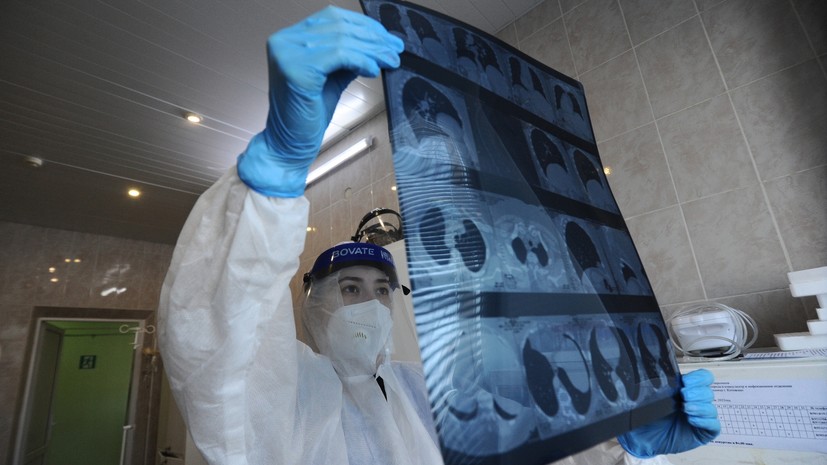In Russia, 8,835 people with coronavirus infection were hospitalized over the past day - the number of hospitalizations is 14.82% less compared to February 20 (10,372).
“The hospitalization rate for the past week per 100 thousand of the population was 76.8 and increased by 0.4% compared to the previous week,” the report says.
The daily increase in COVID-19 cases across the country amounted to 152,337 (the figure was 170,699 the day before).
The largest number of new cases was detected in St. Petersburg (9,043), Krasnoyarsk (5,297) and Perm (5,093) regions, Voronezh (5,082) and Novosibirsk (5,001) regions, Moscow (4,997), Bashkiria (4,387) , Nizhny Novgorod (4,301) and Samara (4,150) regions.
During this time, 127,494 patients fully recovered, 735 people died.
The total number of coronavirus cases registered in Russia has reached 15,522,756.
The headquarters added that over the past week, the incidence rate was 823.72 infected per 100,000 people, a decrease of 9.25%.
“The increase in the incidence occurred in 36 regions of the Russian Federation, including in 19 regions an increase more than the national average,” they specified.
In addition, on February 21, an order from the Ministry of Health came into force, according to which Russians can now receive a certificate of vaccination against COVID-19 or a previous disease based on a positive antibody test.
According to the Moscow operational headquarters for combating COVID-19, 612 people were hospitalized in Moscow per day.
There are 517 people on ventilators in the capital's hospitals.
Over the past 24 hours, 12,622 patients have recovered in Moscow after undergoing treatment for coronavirus.
83 patients have died, all were diagnosed with pneumonia and tested positive for COVID-19.
At the same time, the representative of the World Health Organization in the Russian Federation, Melita Vujnovic, appreciated the statements that Moscow had already overcome the peak incidence of the coronavirus strain "omicron".
“We see that the trend is improving in Moscow.
But we haven't gotten past that yet.
Therefore, it is not necessary to prematurely say that everything has already passed.
It hasn’t passed, but the trend is simply visible that the situation in Moscow is starting to change for the better, ”she said in an interview with TASS.
The WHO representative also suggested that the COVID-19 pandemic could come to an end in 2022.
What does the end of the pandemic mean?
This means there won't be big spikes in cases, but it doesn't mean the virus will go away.
The huge number of infected means that the virus has the ability to mutate, so we do not know how the situation will develop.
But there is cautious optimism that large outbreaks will end when Omicron has circled the entire globe, ”Vujnovic emphasized.
"Sputnik V"
Russia can produce 2 billion doses of coronavirus vaccines a year, said Vasily Osmakov, First Deputy Head of the Ministry of Industry and Trade, the Izvestia newspaper reports.
He clarified that we are talking about 1.3 billion doses of Sputnik Light vaccines, 600 million of Sputnik V and 100 million of all other vaccines.
According to Osmakov, the Ministry of Health and the RDIF are currently forming their “need for volumes” for the current year.
At the same time, he stated that the activity of the vaccination campaign against COVID-19 is declining in Russia.
“In general, the demand for vaccination is falling because a lighter strain of the virus is spreading.
Many people get sick, many get immunity as recovered - accordingly, less vaccination.
Everything is very simple, ”said the deputy head of the Ministry of Industry and Trade.
There has never been a policy on the issue of WHO recognition of the Russian Sputnik V vaccine, Melita Vujnovic said.
“We expect that, if there are no delays, the process (qualification of Sputnik V. - RT ) will go on as usual.
I have repeatedly said that I am satisfied with the way the process is going.
The final decision, of course, will be made by the experts of the WHO strategic group when they receive all the results.
We can say that the process is going very well, ”TASS quotes her.
She noted that inspections of the production sites of Sputnik V are planned for March.
According to her, WHO is considering a document received from the Russian side, which presents a roadmap on corrective and preventive measures.

